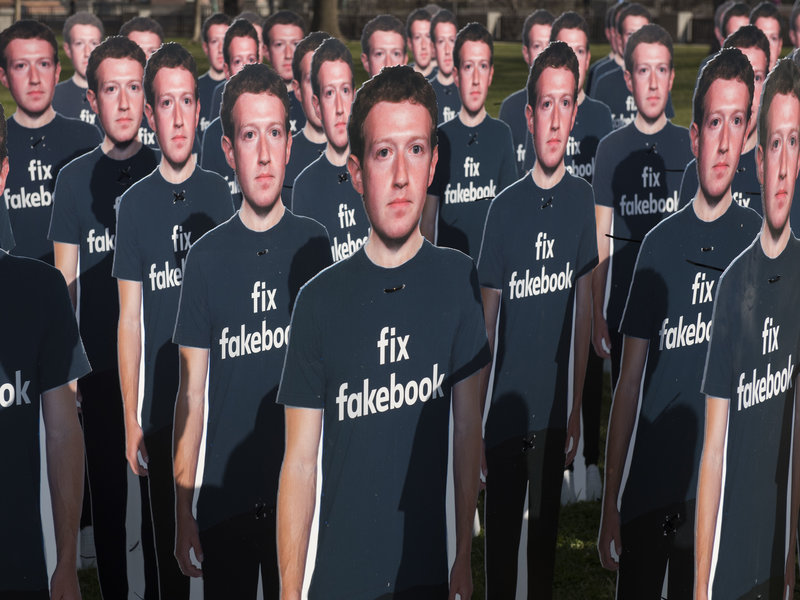 And the hits just keep on coming.
And the hits just keep on coming.
The lawsuits have been mounting up for Facebook this year. In light of dodgy viewership metrics and unsupported ad reach claims, the marketing industry is taking a stand against the tech giant. Earlier this year we saw several marketers sue Facebook over their “misrepresentation” of video ad viewership. That was followed by a new complaint that alleged intentional fraud on the part of Facebook. Then, a lawsuit surfaced around potential reach and Facebook math that just didn’t add up.
Let’s add another to this mix, in case that wasn’t enough. Facebook is now being sued over its location tracking policies, writes Wendy Davis in Publishers Daily.
“Facebook surreptitiously stores information about users’ locations, even when users attempt to stop the company from logging location data, a California resident alleges in a new lawsuit,” Davis writes. She cites the suit brought in California by Brett Heeger, who alleges that “Facebook secretly tracks, logs, and stores location data for all of its users — including those who have sought to limit the information about their locations that Facebook may store in its servers by choosing to turn Location History off.”
“Heeger alleges that he attempted to configure his privacy settings to prevent Facebook from tracking or storing his location,” Davis continues, “but says Facebook nevertheless ‘continued to track and store his private location information.’”
(Per usual, Facebook is sloughing off the charges, handling it in the typical “no response” format we’ve come to expect when accusations fly.)
You might be forgiven some level of skepticism around all these lawsuits – FB is a big target with seemingly bottomless pockets and might be willing to settle on some of these suits to keep the noise down. But there’s something else going on here that shows a much deeper impact of Facebook’s quest to dominate digital advertising.
As Will Oremus writes in Slate, “the media is righteously furious with Facebook—this time, for allegedly misleading advertisers as to how many people were watching videos on the social network. The fury may well be warranted, the righteousness not so much.
“The outrage centers on Facebook’s alleged deception of advertisers about a particular statistic having to do with video viewership. (Facebook admits it screwed up but denies that it intentionally misled people.) But that tiff masks a deeper lie on the part of Facebook and publishers alike,” Oremus continues.
Media brands bought into Facebook’s claims that users were eating up videos. “That kind of data is catnip to online advertisers, who pursue mostly in vain any morsel of evidence that people are actually paying attention to the ads they spend so much money on,” Oremus writes.
And they made drastic changes to their business models in the process, laying off journalists and hiring video production teams. And that’s why publishers are not off the hook in this debate.
“The shift from text to video was never about what normal people wanted, for Facebook or the media companies that followed its lead. It was always about what advertisers wanted:
the captive attention of consumers.”
“The staffing changes inspired by Facebook’s emphasis on video cost good journalists their jobs,” Oremus writes. “In 2016, the fact that Facebook had been misrepresenting the viewership of video ads to advertisers didn’t necessarily seem like a huge deal to anyone other than advertisers. Fast forward to today and it’s clear the problems with online video ran deep. It turned out most people weren’t much more interested in watching editorial video content than they were in watching video ads.”
Two years since and journalists are still peeved, even more so now that we know metrics were even further off than anyone suspected in 2016 when we predicted the burst of the video bubble. Meanwhile, media brands have laid off those brilliant video folks they took on, sheepishly understanding – if not publicly acknowledging – their complicity in the scheme and dealing with this somewhat uncomfortable reality.
“If there’s a lesson here beyond ‘don’t trust Facebook,’ it’s that media companies are supposed to try to align their business models with their editorial goals—not the other way around,” Oremus concludes.
Lessons learned for the publishing industry, no doubt. And even more reasons why Facebook is quickly becoming the poster giant for how to destroy any semblance of user trust. It’s funny – just a few years ago we are all abuzz over digital ad fraud by shady bots and dark web scammers. And it seems that all along, the biggest scammer of all may have been right in front of our noses.
